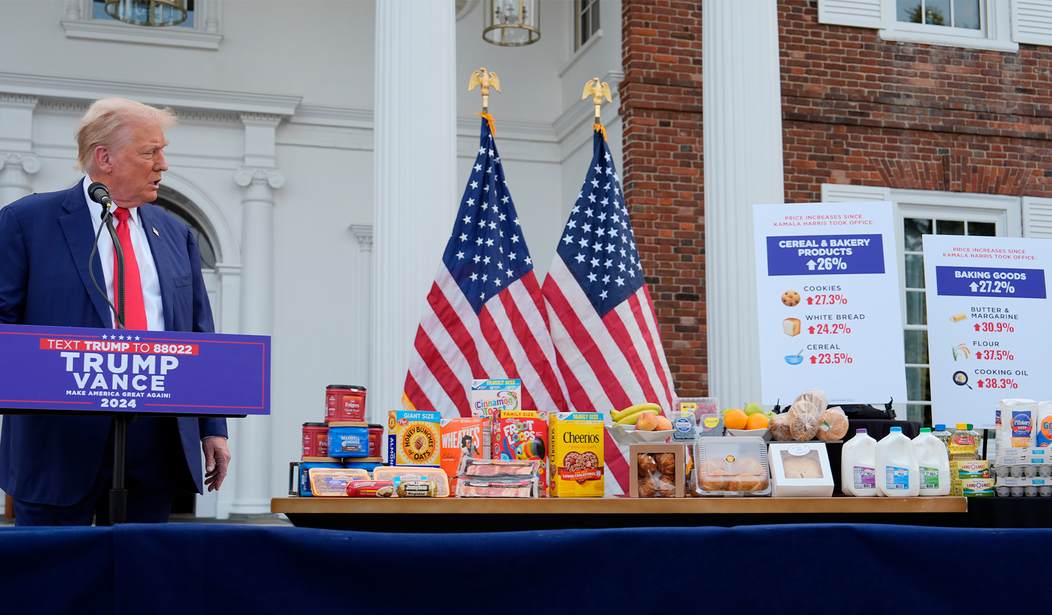This is hardly the first time the question has come up, but it is currently making the rounds again in Democratic circles and in the legacy media. (But I repeat myself.) At issue is Donald Trump's stated intention to deploy federal troops on American soil to handle emergency situations. This is primarily a scaremongering tactic intended to dissuade persuadable voters from throwing their support behind Trump's efforts to return to the White House in January. There is a prime example of this phenomenon in the Boston Globe this weekend, where Charlie Savage pens an ominous article about a dystopian future, leading off with a dark photograph of a line of anonymous troops in riot gear staring down a group of cowering citizens on a city street. But what precisely is Trump planning to do with these troops and would such an order even be legal or constitutional? Let's take a deeper look because the answers may not be quite as black and white as some might first imagine.
During the turbulent summer of 2020, President Donald Trump raged at his military and legal advisers, calling them “losers” for objecting to his idea of using federal troops to suppress outbreaks of violence during the nationwide protests over the police murder of George Floyd.
It wasn’t the only time Trump was talked out of using the military for domestic law enforcement — a practice that would carry profound implications for civil liberties and for the traditional constraints on federal power. He repeatedly raised the idea of using troops to secure border states, former aides have said.
In his first term in office, Trump never realized his expansive vision of using troops to enforce the law on US soil. But as he has sought a return to power, he has made clear that he intends to use the military for a range of domestic law enforcement purposes, including patrolling the border, suppressing protests that he deems to have turned into riots, and even fighting crime in big cities run by Democrats.
As noted above, we can generally break down Trump's stated goal of deploying troops in domestic situations into three categories. The first and most obvious would be to help secure our borders and stem the flow of illegal migrants into the country. The second would be the suppression of violent riots. The third and potentially the most controversial would be to have the troops assist state and local law enforcement in combatting crime, particularly in larger cities that are plagued by violent criminals. These are all noble goals, but they are not traditionally seen as appropriate assignments for the armed forces.
The first question to tackle is whether or not this would even be legal for the President to do. Traditionally, the default answer to that question has been "no" and it hasn't been legal since the Civil War era and the passing of the Posse Comitatus Act. It specifically reads, "Whoever, except in cases and under circumstances expressly authorized by the Constitution or Act of Congress, willfully uses any part of the Army or the Air Force as a posse comitatus or otherwise to execute the laws shall be fined under this title or imprisoned not more than two years, or both.”
You can read the full history and implications of the act at the link if you wish, but it's fairly straightforward. The Founders viewed the idea of a central government using the military against its own citizens as an imminent threat to democracy. But the question isn't nearly as clear as some might wish because we also need to take into account the Insurrection Act of 1807, which blows a gaping hole into Posse Comitatus. The Act allows the president to deploy the military inside the United States and use it against Americans in the event that the POTUS determines that a crisis has risen to the point of an insurrection against the government. The Insurrection Act and its predecessor, the Calling Forth Act of 1792 have been invoked at least 30 times over the nation's history.
We're left to ask questions that have regularly come up in the seemingly endless debate over the events of January 6, 2021. What exactly constitutes an insurrection and who gets to make the call when one is taking place? Therein lies the problem. The authors of the Insurrection Act offered virtually no guidance in terms of when a crisis rises to the level of an insurrection. But they left us a very large clue as to who gets to make the call in the first sentence of the bill. "Whenever the President considers that unlawful obstructions, combinations, or assemblages, or rebellion..." At least in theory, there is an answer to the question. The President decides. If the President looks at a crisis and declares it to be an insurrection, then it's an insurrection and they can send in the troops without penalty.
That will no doubt be a less-than-satisfactory answer for many and that's understandable. But the laws say what they say. If Donald Trump views an army of illegal migrants including people on the terror watchlist and South American gang members to represent an insurrection, he can send in the troops, at least in theory. If riots in the streets of major cities overwhelm the resources of state and local law enforcement, threatening the stability of those local governments, the same would apply. And Posse Comitatus doesn't offer any tools to alter that situation as far as I can tell.








Join the conversation as a VIP Member